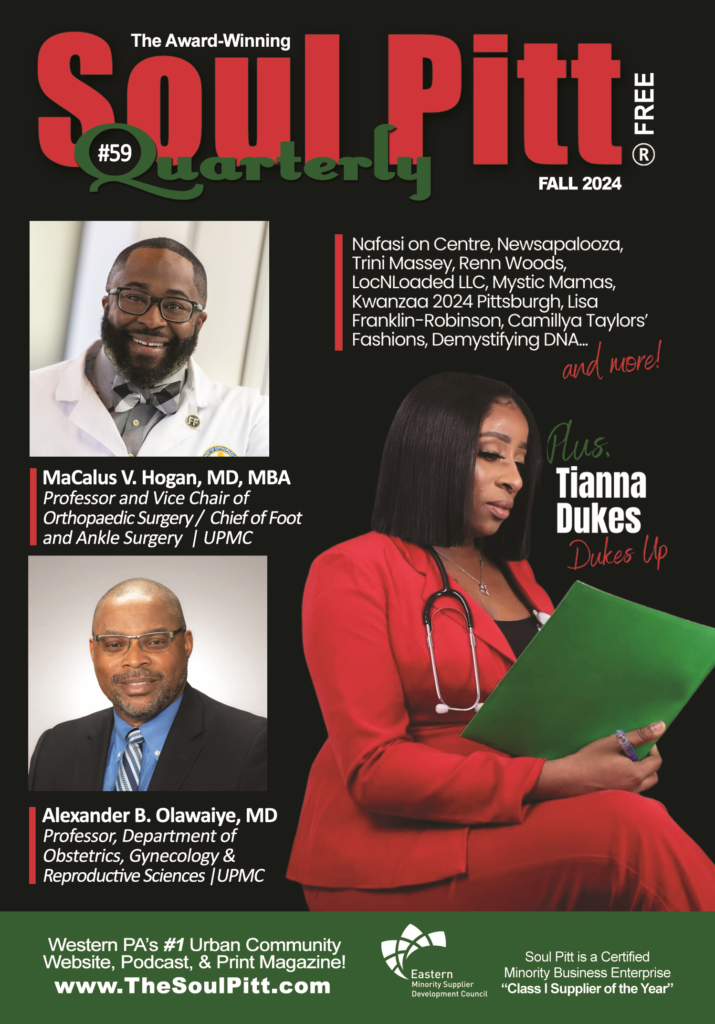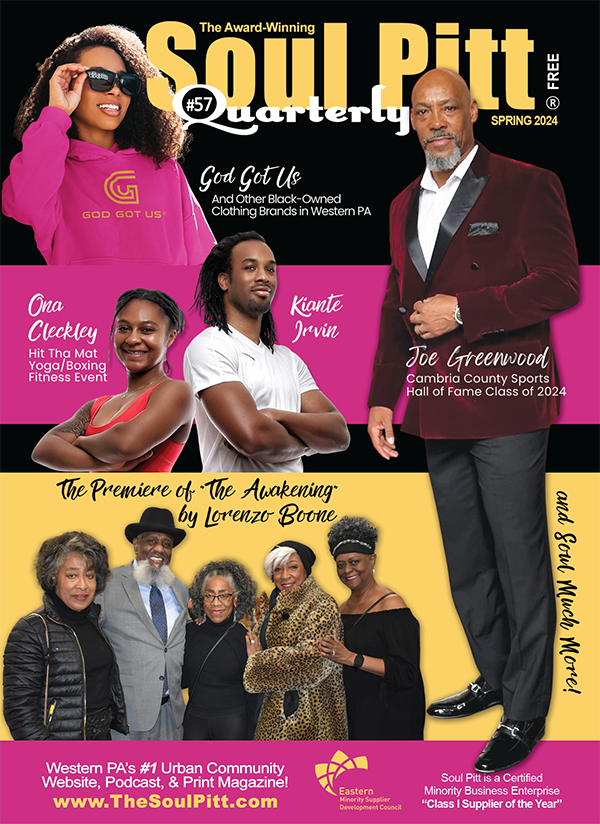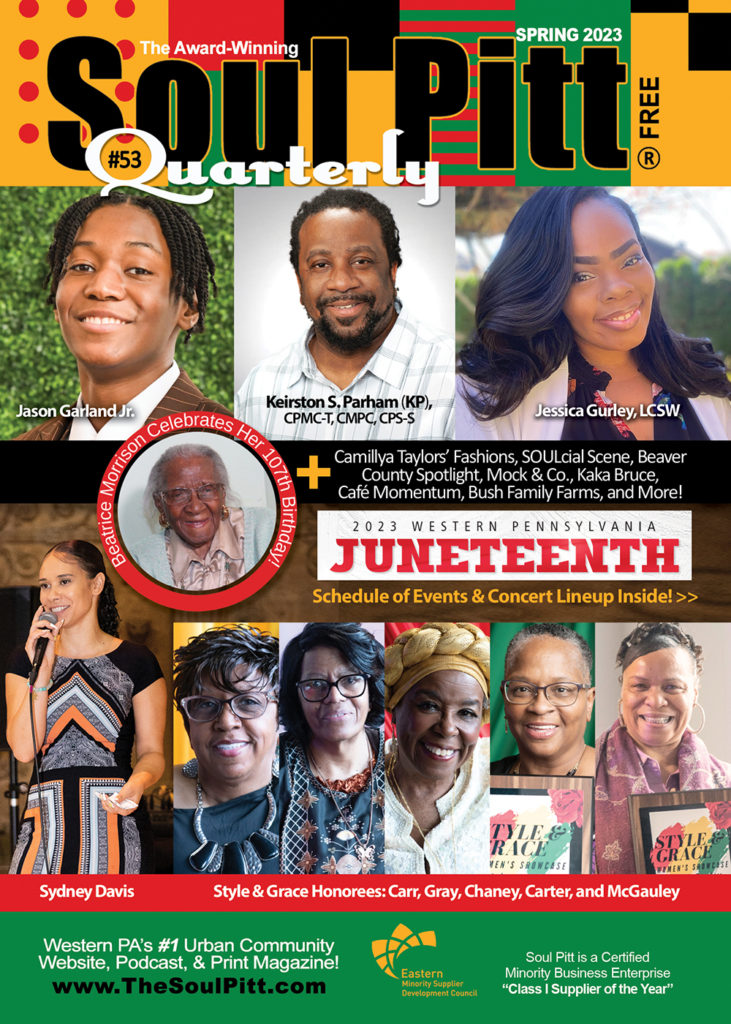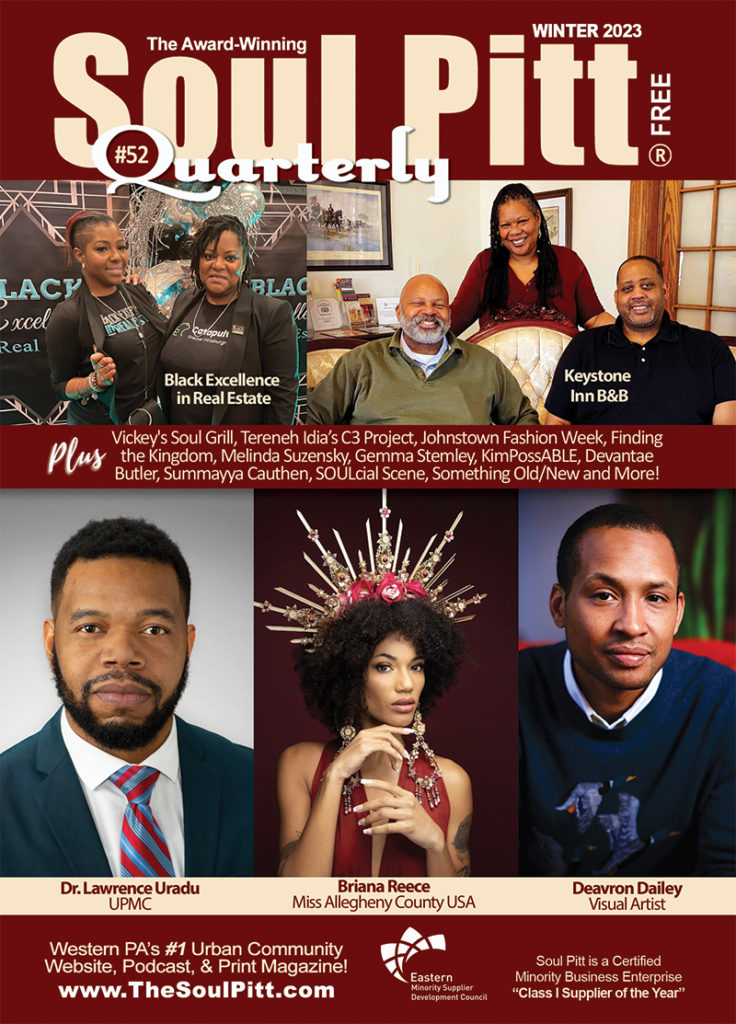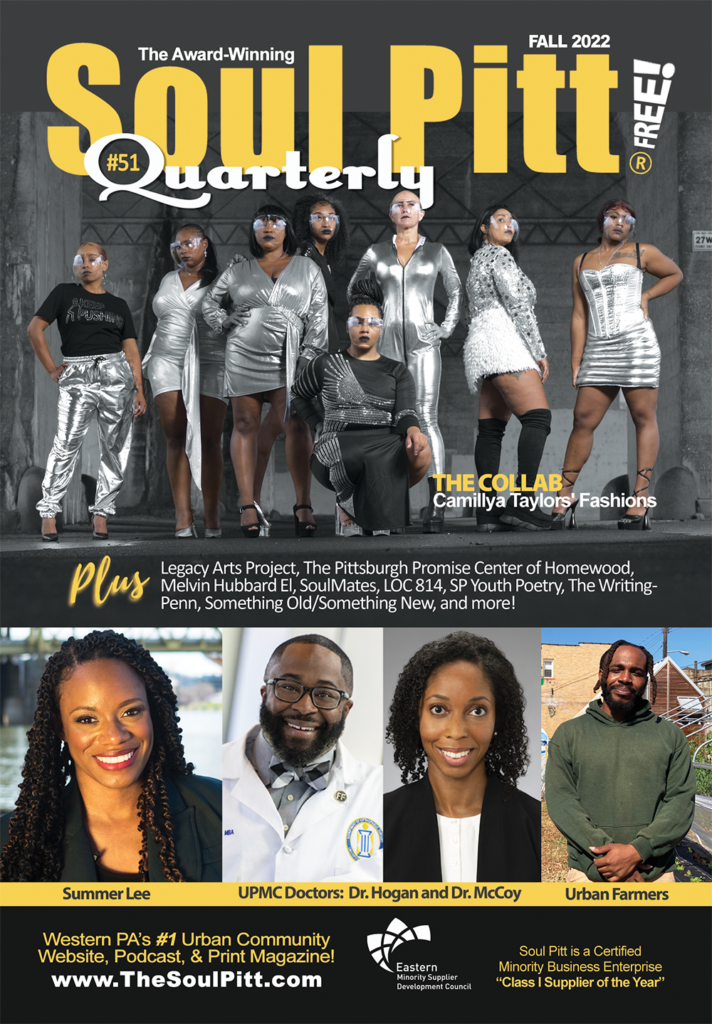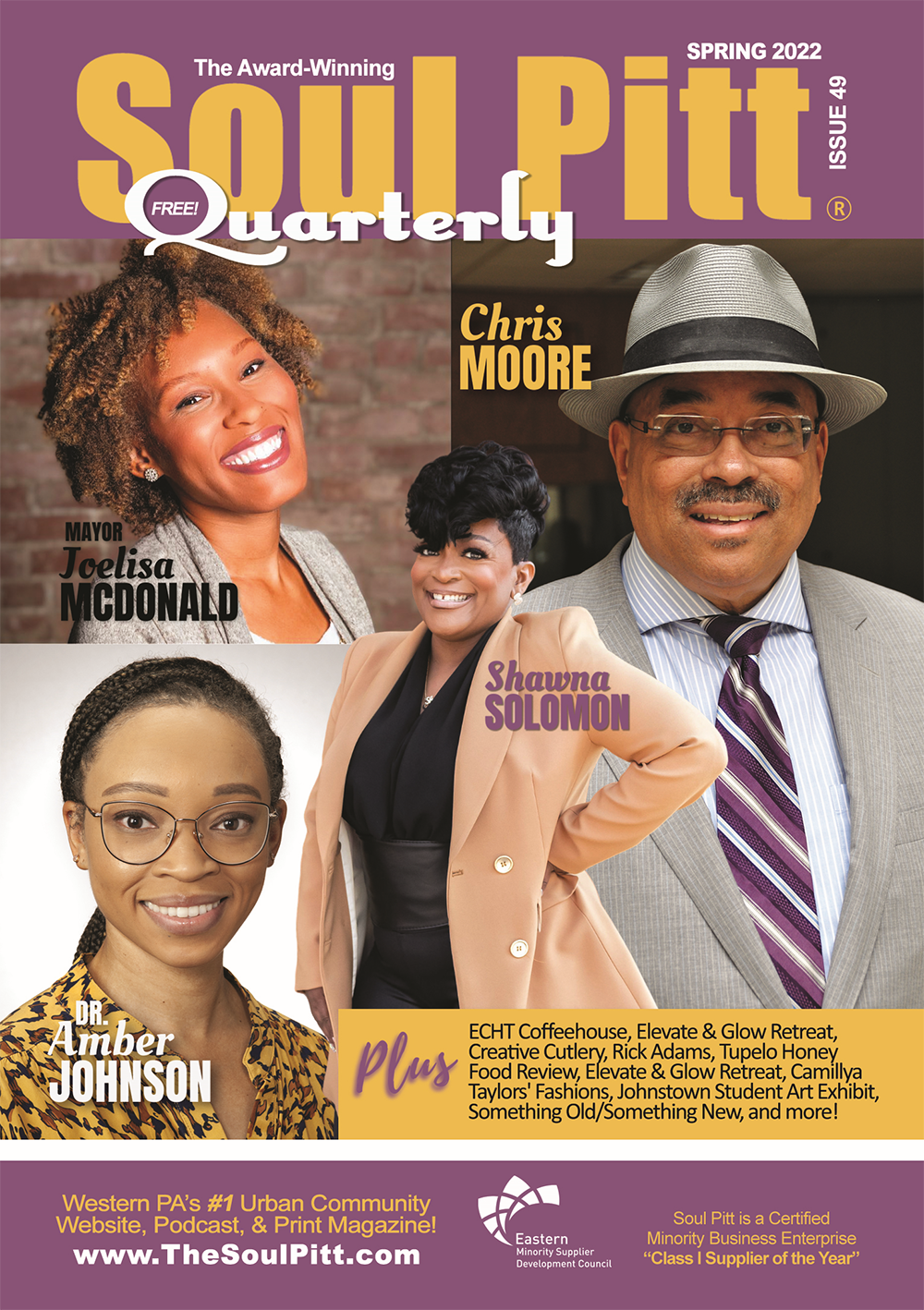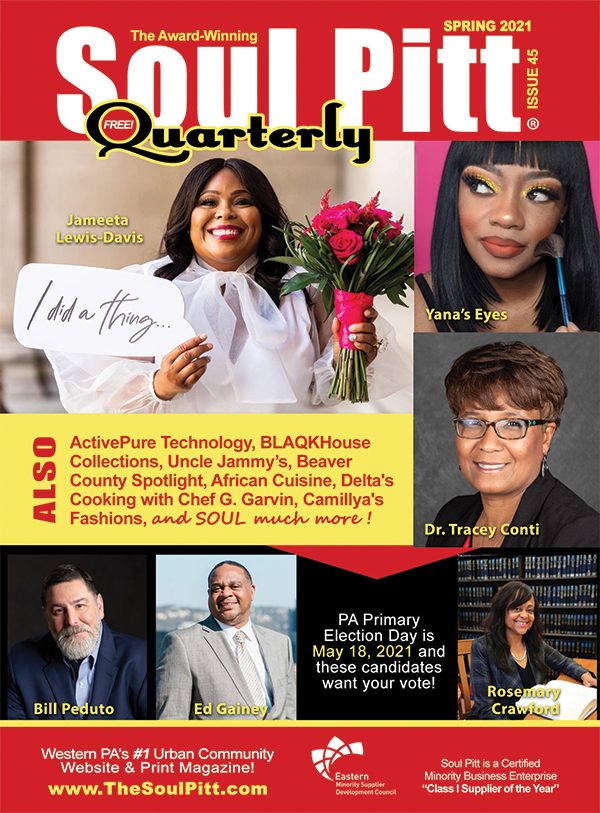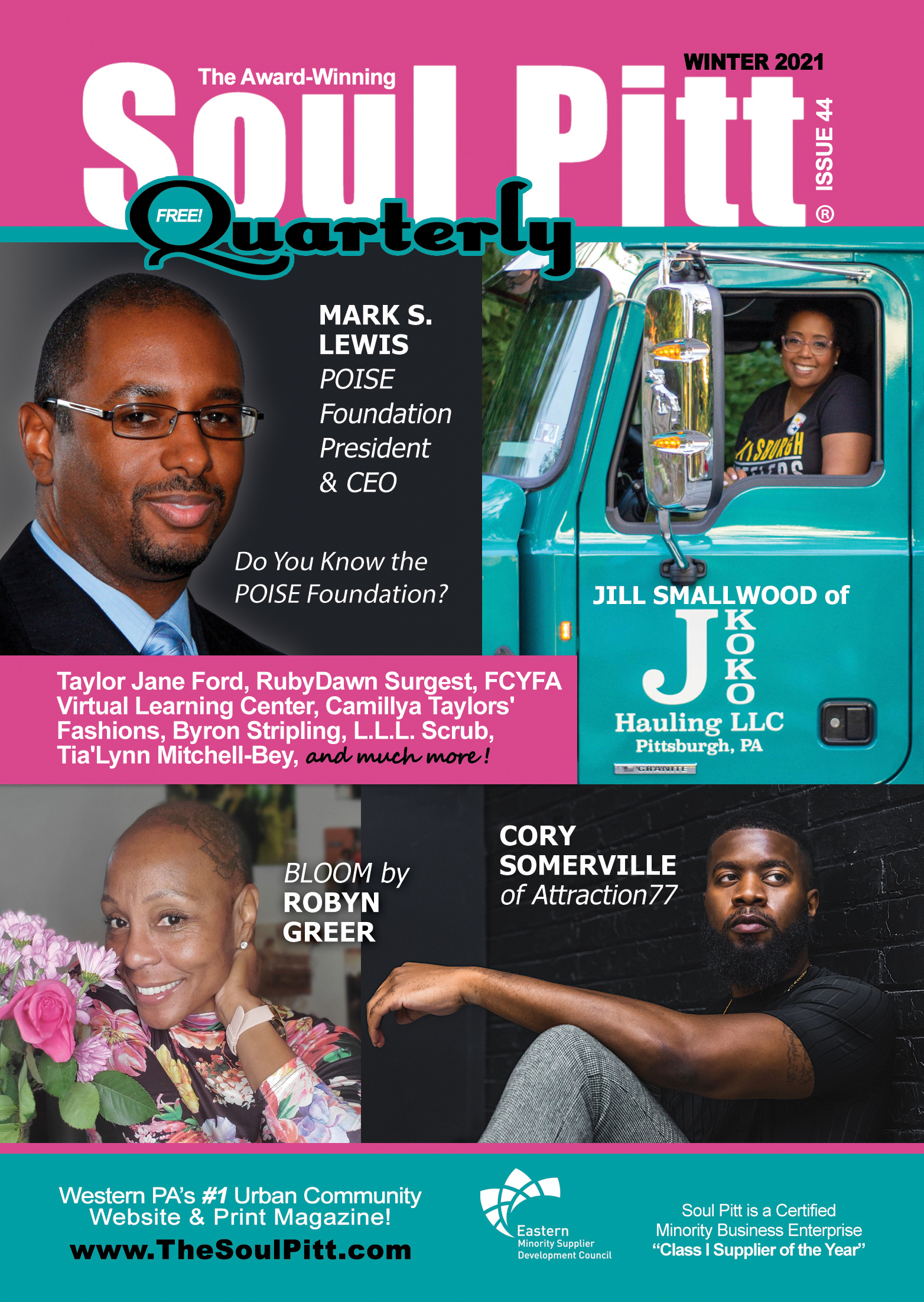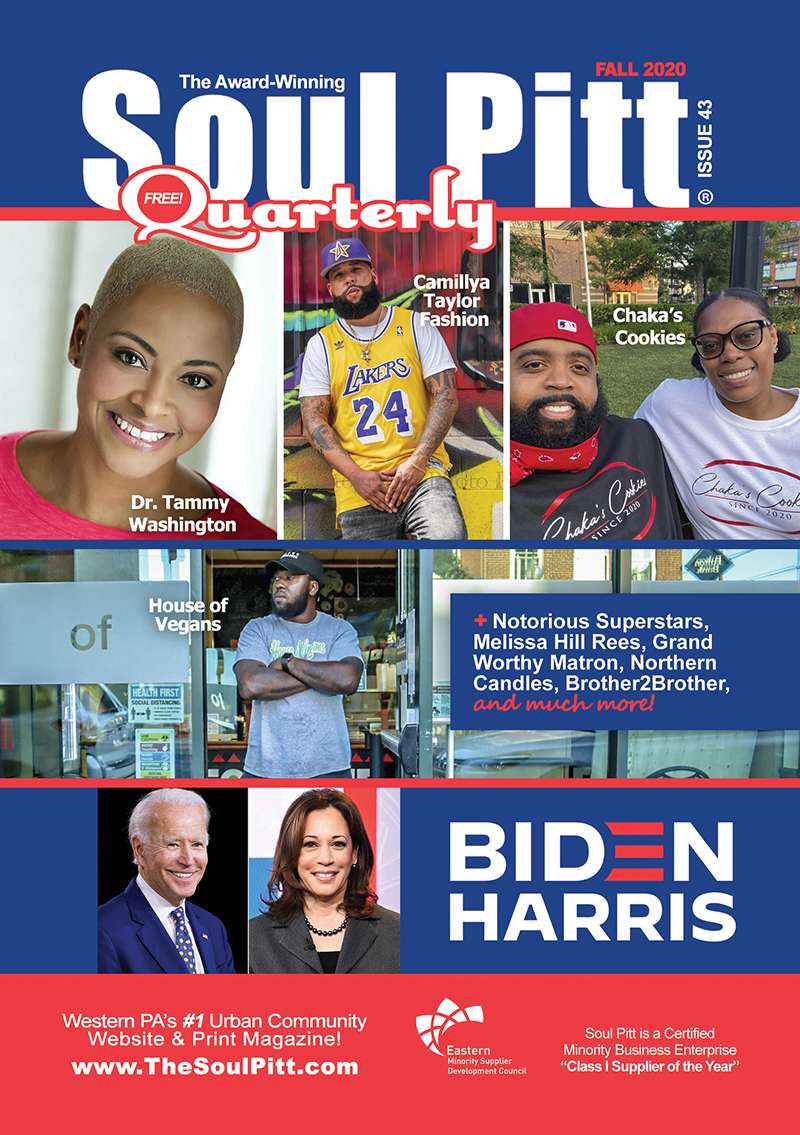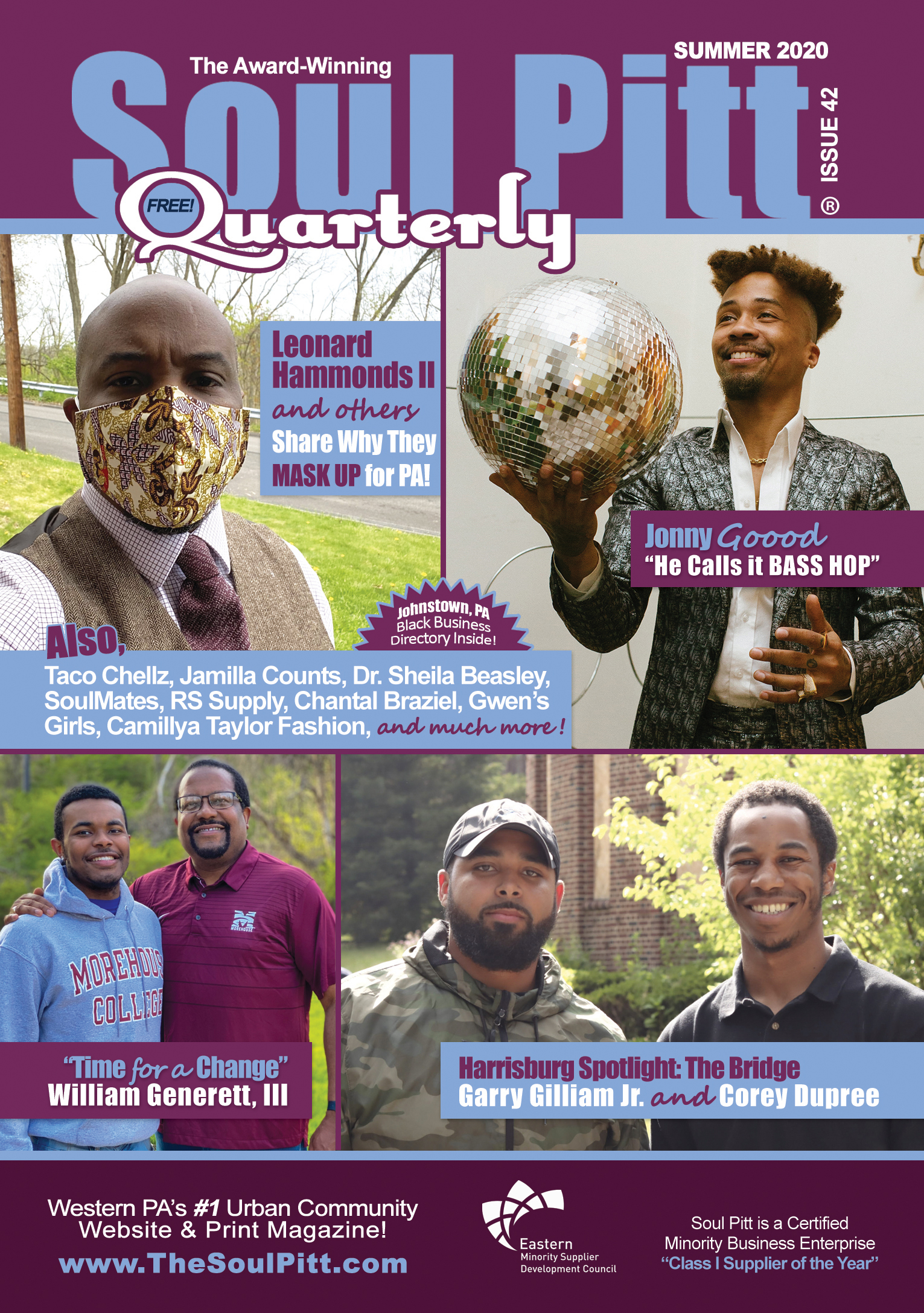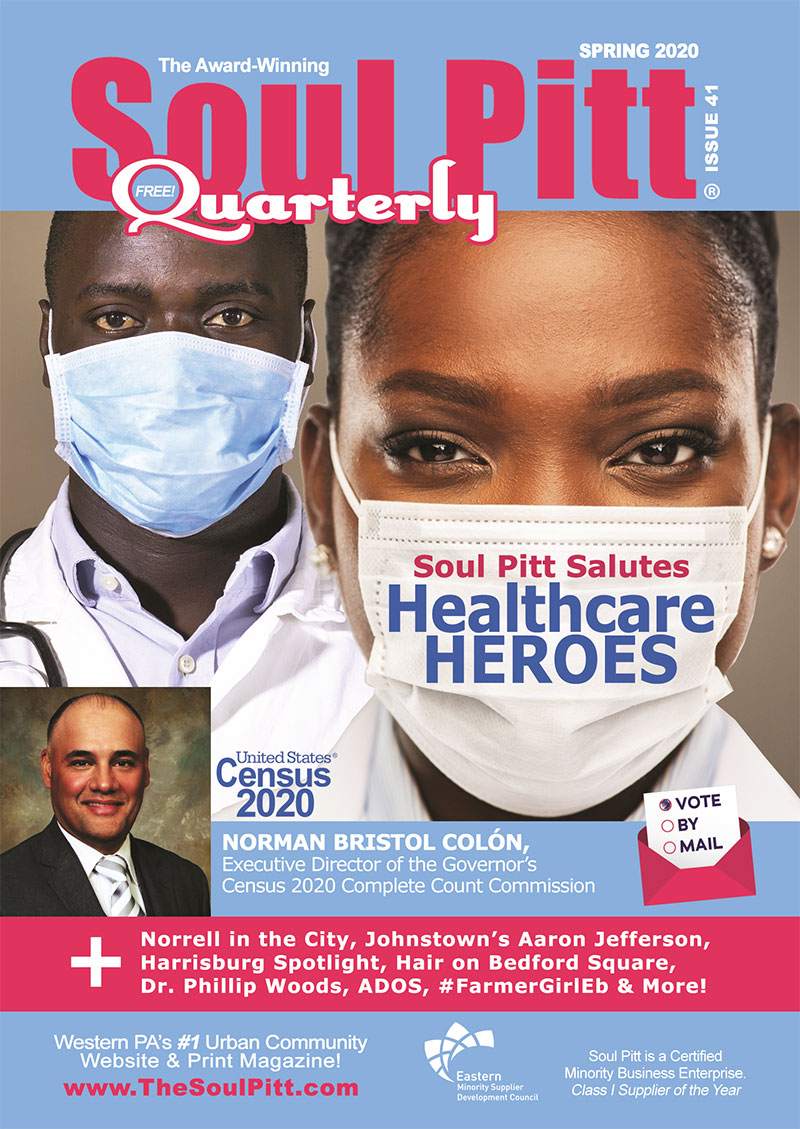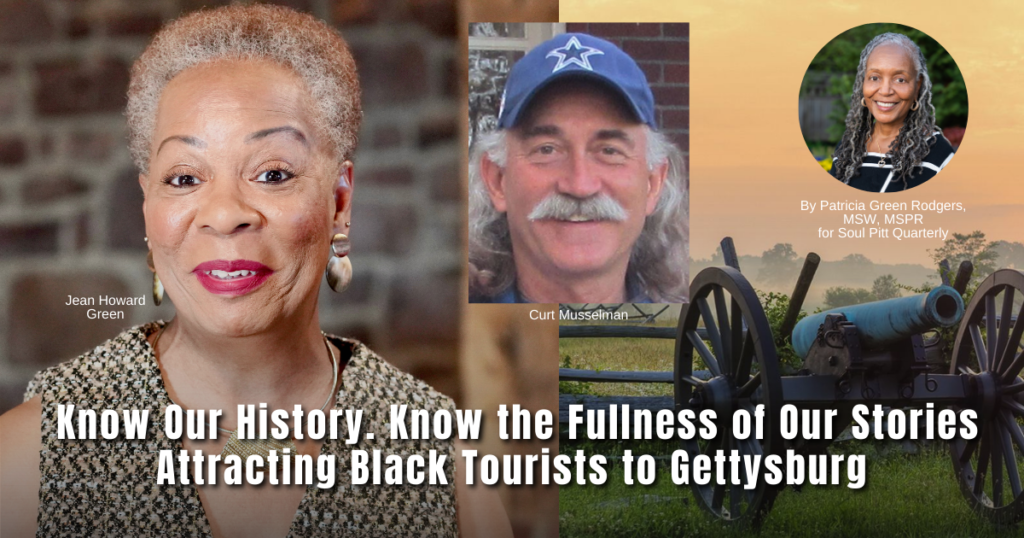
This article was first published in Soul Pitt Quarterly Print Magazine (Summer 2024). Copyright Soul Pitt Media. All Rights Reserved.
Adams County, PA, is unlike anywhere I have ever lived, and in a positive way. Yet more than a few friends ask: “Why are you there?” My reply: “Because I married Bob (who is white), and he was here.” Yet the reason why I have come to embrace this place I call home is even more profound: life was bringing me here. Yet everything is different from my norm.
I’m an African American woman in a primarily rural, majority-white, conservative part of Pennsylvania. Undoubtedly, this draws interest among curious friends. What is this yearning I have? I build bridges, not walls. Though I am here because of a marriage, I choose to stay here because my voice is different. Yet, I am open to crossing the bridge to common ground. So, the bridges I built began by inviting local white women to our farm. I hosted female authors and moderated discussions and Q&As, and we sold books. My guests were enveloped in a beautiful landscape, vegetable and herb gardens, historic structures, one registered as a Civil War Building, and healing spaces I created on the land, notably Serenity Grove. The magic happened, and I had a powerful sense of calm I never felt in my city life. I had found my purpose without fear or doubt.
Yet, some in my network were doubters. One friend I’ve known since childhood in Richmond, Virginia, calls me Green Acres on my Facebook page. This is his comparison of me to Ava Gabor’s socialite character in the 1960’s to 1970’s TV sitcom Green Acres and her failure at farm life. I decided to show rather than tell and launched weekend experiences for Black women and men in my influencer network. First came “When Sisters Gather In Gettysburg,” in August and September 2022. Next was “Power Couples Weekend” last August. The farthest away guests traveled from California. Judge Dwayne Woodruff and his wife, Joy; Jerry and Dr. Milton Allen; Dr. Eveldora Wheeler and her husband, Attorney Donald Seaton; Roxanne Epperson; Renee Aldrich; Soul Pitt’s own Donna Baxter Porcher and her husband, David C. Porcher, came from Pittsburgh.
The weekends began with a Friday night soul food dinner at our farm. Saturday was a day to discover Gettysburg yet in ways that resonate with who we are culturally. Sunday’s closing breakfast left most guests with a desire to return. Why? Because Gettysburg is rich in charm and history. Recognized as one of the Best Small Towns in America by Smithsonian Magazine, USA Today, and U.S. News Travel, the Borough attracts over a million tourists each summer. Many come because of the battlefields. The Battle of Gettysburg was the turning point of the Civil War and led to slavery’s end. President Lincoln delivered the Gettysburg Address on Cemetery Hill in the Soldiers’ National Cemetery.
Speaking of cemeteries, Lincoln Cemetery was unknown to many beyond Gettysburg before Jean Howard Green, President of the Lincoln Cemetery Project Association, assumed leadership. “Black men could join the war, which led to the formation of the United States Colored Troops. The ‘Sons of Goodwill’ formed when Gettysburg’s Black soldiers returned from battle in 1867. The purpose was to establish a final resting place for Black veterans. Segregation was the law, even in death,” Jean shares. Following the Battle of Gettysburg, Basil Biggs, a Black veterinarian, was hired to disinter bodies from temporary cemeteries, place them in coffins, and rebury them. Biggs is buried in Lincoln Cemetery. “Lincoln Cemetery is the only concrete evidence of a Black community in Gettysburg,” Jean concludes. Her tour is a highlight for each group I have hosted, with some making tax-deductible contributions to the cemetery. Says Joy Woodruff, “I enjoyed going to Lincoln Cemetery, which has all kinds of history; it was a real lesson for me.”
Curt Musselman, who chairs Historic Gettysburg Adams County’s Preservation Committee, also guides tours for the McAllister’s Mill Underground Railroad Station. McAllister was an abolitionist, and the mill was an important station on the Underground Railroad. Curt expounds: “In 2011, HGAC successfully nominated the McAllister’s Mill Site to the National Park Service (NPS) Network to Freedom (NTF), and we began tours that summer. The site is within the authorized boundary of the Gettysburg National Military Park, yet privately owned. Because it is close to Gettysburg, the site is convenient for tourists and locals. HGAC is interested in telling the full history of Gettysburg and Adams County rather than just the story of who shot whom and where,” Curt concludes.
Curt continues: “Feedback is not just positive; it’s overwhelmingly so. We receive glowing comments about our tours. People appreciate that we are making an effort to tell the story of the freedom seekers who came through Gettysburg and put to rest the lie of the ‘happy slaves.’ Everyone should know about the causes of the Civil War and the resistance to slavery exemplified by the activities of the Underground Railroad,” Curt concludes.
Gettysburg is rich in cultural organizations that speak to various market segments. This month, Gettysburg will launch the Black History Trail. Eleven locations on the self-guided tour will paint a picture of Gettysburg’s Black heritage. Destination Gettysburg, the tourism arm of Adams County, is among the partners bringing life to what Wayne E. Motts, president emeritus and historian of the Gettysburg Foundation, says “is a great educational initiative.”
Destination Gettysburg shares that “the partners are open to discussing and suggesting ways to accurately interpret the stories and history of Black citizens in Gettysburg before, during, and after the battle. Most of what is included in this first iteration of the trail evolves around the time of the battle because those stories are well-documented and included in partner offerings. But the partners know and understand that many more stories must be told. The group’s initial goal was to ensure the places included had a compelling and clear story associated with them and could give visitors quality experiences. Partners reviewed at least 30 other markets around the country that have already developed Black history and heritage trails, whether in a digital or printed format. The experience and contributions of the Black community are an integral part of Gettysburg’s story, and we hope that the Black History Trail will amplify that message,” says Destination Gettysburg President and CEO Karl Pietrzak.
I will offer more articles in this space that shed light on Adams County, its people, unique and exciting places to visit, and other factors that make it an attractive destination for Blacks and multicultural audiences. Questions? Comments? Email me at patricia@stoneofsconefarm.com.


